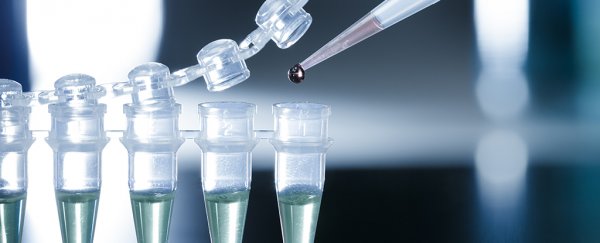Stem cells are amazing. They hold the potential to repair almost any part of the body, shifting into different cell types on demand. But that doesn't mean you can trust all the treatment pitches out there with "stem cells" in the description - often these therapies have not been tested, and do more harm than good.
Now the US Food and Drug Administration (FDA) has finally announced it will make a concerted effort to stamp out unproven stem cell remedies that haven't been properly vetted and may even be dangerous to patients.
The agency has been busy calling out clinics that it believes are misleading patients, and has also seized medicines being used for purposes they haven't been approved for, taking the shine off what should be a very exciting area of research.
"These new technologies, most of which are in early stages of development, hold significant promise for transformative and potentially curative treatments for some of humanity's most troubling and intractable maladies," says FDA Commissioner Scott Gottlieb.
"However, with all of the medical potential, also comes novelty and uncertainty as this field matures."
Gottlieb points to "a small number of unscrupulous actors" who are making the most of the potential of stem cells and the desperation of sick people to cash in, describing some of the treatments on the market as "dangerously dubious".
Hundreds of clinics across the US are now selling unapproved stem cell therapies and the FDA has taken action against two clinics in Florida and California.
One of the clinics in question was linked to a case where three women went blind after receiving unproven stem cell treatments for failing eyesight.
At the other clinic, authorities seized five vials of a smallpox vaccine that was apparently being used as an experimental stem cell treatment for cancer.
In statements, the clinics involved say their treatments are administered as part of carefully researched programs and within the FDA's laws.
However, many medical experts backed up the actions of the FDA. "This is spectacular," stem cell researcher George Daley, from the Harvard Medical School, told Rob Stein at NPR. "This is the right thing to do."
Let's not lose sight of the good work that stem cells can do – but any attempts to use them to fight the world's most stubborn diseases must be carried out in approved and structured research studies, not as miracle cures you can pick up from a clinic.
As we reported last month, clinics across the world are hawking stem cell treatments that are at best unproven and often potentially harmful. Not only does it put people at risk, it could get in the way of genuinely useful stem cell research.
People must be wary of stem cell treatments offered by clinics. Methods should be backed by reputable independent research, not sold based on vague promises and testimonials from past patients.
The FDA says it's committed to working out a fair and understandable framework for stem cell treatments that clinics can abide by, and to making the treatment approval process easier and cheaper.
The agency has also warned that more clinics breaching the rules will face action in the future, and that it's come across are clear instances where unproven treatments have harmed patients.
"I see this is a major, positive step by the FDA," cell biologist Paul Knoepfler, from the University of California, Davis, told NPR.
"I'm hoping that this signals a historic shift by the FDA to tackle the big problem of stem-cell clinics selling unapproved and sometimes dangerous stem cell 'treatments' that may not be real treatments."
